Day 6
Written by Chenoa Lee, 3/14/13
Today we said our goodbyes to Frank and began the drive to the next destination in our journey, Dallas. In this town, a group of concerned citizens organized the Gas Drilling Awareness Coalition (GDAC) and have taken measures to stop the oil and gas companies from placing their facilities within the area because of their harmful side effects. Using zoning rights, they fought the placement of a dehydration plant which would be located only a few hundred feet away from a middle and elementary school. While they were successful in protecting that area from development, unfortunately, gas and oil companies aren’t stupid, so instead they placed their facility in the next township over, only a road separates the two townships.
The gas company promised the residence and land-owners that the plant would not interfere with their every day life. However, residences have reported something drastically different. Scott Canon and a local resident met with us to talk about how the dehydration plant has affected the lives of the nearby residences.
While only one resident is collecting money from leasing his land, all of them are effected and have suffered severe reaction including nosebleeds and sinus infections. There livelihood has also been severely impacted due to lack of regulation on the plant. Gas releases, explosions, and severe noise has terrified the local community, damaged their health, and is causing their animals to flee to other areas and become ill. These people do not have the option of leaving, and are stuck living in conditions that are negatively impacting their health, distorting the beauty of the area, hurting their only means of income, and destroying the property value of the homes.
After traveling around the area and seeing the industry’s sites and the individuals being affected by them, we attended a meeting sponsored by the GDAC with Deborah Rogers as the speaker.
She is highly qualified financial analyst, who was inspired to speak out against the shale gas industry after personally being effected by a shale facility and hearing a speech in 2009 by Aubrey McClendon, CEO of Chesapeake Energy. “He was throwing out some numbers and I thought these numbers aren’t adding up, so I decided to investigate.” With this in mind, Roger’s discovered that shale companies were drastically over estimating their reserves and in actuality, would not be able to deliver on their promises to investors. Instead of 100 years of shale gas, the amount is closer to 11 years, especially since the efficiency of unconventional shale gas is 6.4%. With these numbers, the proposed gas lines and facilities to ship to gas to Europe are completely unnecessary because the US will run out of gas before they are even completed.
At this point in the journey, I am simply frustrated with the inconsistencies between what the shale and oil companies are telling us and what outside sources are suggesting. Do we have 100+ years or 11? If you can drink hydraulic fracking fluid because its “GREEN” why do your workers receive burns and rashes when they come into contact with it? If you are boosting the economy and providing jobs, why is your contribution only 1/20 of the entire US labor market, and why do you include prostitution and strippers in your calculations? If unconventional hydraulic fracturing does not cause increased radiation , why do you locate your gas lines by measuring RADIOACTIVITY. If you’re a safe and legitimate industry why the need for ACT 13 (takes away land-owner rights), the 40/60 rule ( if 60% of you neighbors lease their land, the company has rights to yours), and a physicians gag order( doctor’s who treat individuals effected by the industry cannot share information about the chemicals). Obviously, someone is wrong or being purposely evasive and while our journey is winding down, the questions are not.
Day 5
Written by Jordan Phillips
Today we met with an expert on the fracking issue, Seamus McGraw. He authored the first major book on the modern fracking process in Pennsylvania, called End of Country, and is pretty well respected on both sides of the issue. He tours the country nationally educating the public on the costs and benefits on fracking.
We spent all day with Seamus, just immersed in casual conversation with all 9 of us on his couch. It was a great, and sometimes heated, exchange of ideas and viewpoints. We later took a hike with him on his property and around his gas well. We also met with his wonderful mom and his water expert friend, Brian Oram, who taught us about the processes for analyzing well water.
To summarize our conversation with Seamus, he said that acknowledged all the following negative effects are happening because of natural gas, but there are benefits too.
The following are happening (and this is not even a comprehensive list):
-Water wells are being contaminated with methane and toxic chemicals
-Contrary to popular belief, natural gas could have an even higher level of green house gas emissions than oil because methane is over 100x more powerful at trapping heat in the short term.
-Diesel spills are common from rig sites, contaminating the land.
-The gas companies have meager regulations and special exceptions from federal environmental laws, and those controlling regulatory offices (mainly the EPA and Pennsylvania DEP) cannot adequately test and monitor the gas companies.
-Gas companies are cutting corners in every possible way of the fracking process at the expense of public safety including (1) using the cheapest piping (called class 1 piping) that is more likely to fail and, (2) they are creating pits of toxic fracking fluid with thin plastic liners that sit in the open air and rip then leak into the groundwater.
-The rocks underground unearthed during the drilling process are radioactive and dumped in landfills, which run off into water sources.
-Gas companies rush to drill wells prematurely (as famously reported in Dimmock), which results in violations and mishaps
-There is corruption in local politics (schools, churches, local newspapers)
-Crime, traffic, and accidents have risen dramatically in the local community
-The gas companies tell people what they want to hear and leave out important details in order to get a lease.
-Compressors end up emitting toxic fumes that smell disgusting and cannot be escaped.
-People working on and living near wells are having negative health effects like higher cancer rates, nosebleeds, headaches, and stomach aches. Also, their doctors have gag orders and are not allowed to disclose gas industry related illnesses (to protect the industry).
-When people’s water becomes contaminated due to fracking, the companies offer to provide people with bottled water, but they have to sign non-disclosure agreements (meaning the people aren’t allowed to say why they are receiving bottled water).
But:
-Regulation has improved because of all the public criticism of fracking.
-Natural gas is extracted with less environmental damage than coal and has emits less carbon dioxide than coal (though natural gas releases methane into the atmosphere which is far more powerful at trapping heat than carbon).
-Some temporary jobs are created in PA to set up the wells for things like mixing chemicals and driving trucks.
-Corporations (Domestic and International companies own wells in PA) can export the natural gas for more profits.
-People who lease their land will receive royalty checks for the length of the wells production (10-20 years).
My take: Framing any argument against coal is a straw-man argument. Anything compared to coal seems better. But when one compares “natural” gas to renewables, I don’t even think twice about my new unabashed support for renewables. The slightly extra cost is worth it because the real costs of fossil fuels (see above) are not being priced properly by our society. If people saw the negative environmental and human impacts that come from fossil fuels every time they switched on their lights or stove, I think people would care much more about what kind of fuel they consume. It’s convenient for everybody outside of PA because they do not see the effects of their electricity use. They just turn it on and it is there for them. So, I urge people to find out the truth of where their electricity comes from and take action accordingly. It’s 2013, global warming is real and the negative consequences are real.
—
We then walked around town and chatted with some very nice locals. We had dinner at a local pizzeria, hung out in a local music store, and even got free soap from “Sassy Albert Soaps.” The prevailing opinion from storeowners was that they were happy with the increased foot traffic from drillers, but they were aware of the health and pollution problems in the community.
—
Finally we finished with a night tour of “flaring,” a process where methane gas is released into the air and ignited for 1-2 weeks after the toxic fracking fluid has been removed from the well. This creates a huge 30-foot high fireball flame that can be seen for miles. The companies say the methane needs to be released because there is too much pressure from methane in the well, but we could also smell the chemicals coming from the well. In fact, the people in our van could taste a plastic-orange film in their mouth and got headaches. We were about 1000 feet away from the flaring, but people’s homes were even closer, and they would have to live with the flame for at least a week. I did not even mention that the flaring is as loud as an airplane engine and that it goes on 24 hours a day until the flaring is over. Can you imagine living next to that?
Day 4
Written by Alex Hitchens
It was tough to think of an introduction to this blog post because I was on a roller coaster of emotions today. In this post I have to synthesize testimonies and what seems like a documentary horror film (identified as such with the help of Jordan). The members of these communities refer to the gas and oil industry as Industry with a capital ‘I’. It is frightening to now think that those of Industry in these areas seem to be aliens, lacking human emotion and possibly morality.
Frank (the man hosting the group) and Rebecca, both concerned citizens in the community, were our tour guides in between visiting Paul, Gerri, Tammy and Ray.
Paul leased his land, but he was not told about the compressor (takes the extracted gas and pushes it through the gas lines) only moments from his home and his biggest complaint is the low frequency noise emitted. Low frequency was used by the allies against the Nazis during WWII because it causes irritability. What a comparison. There is a noise ordinance, but there is no way to enforce it because there is no monitoring or trained people.
We talked a lot about how these companies cut corners to save money, about the required versus the safety standards. In this compressor, it is almost obvious that Williams (company) had gone with the minimum safety standard of metal for its piping. For instance, the compressor had been humming at its loudest for a while, and Paul was curious as to why. He was given a tour and assured of the compressor’s safety, but five months later it blew up.
Paul had “paradise” before natural gas, and if he could do it all over again he would not have signed his leased because of the aggravation it is causing him.
The view from his backyard, his former paradise turned nightmare:
In between visiting with Paul and Gerri we approached a frack site and were told that we had to stay off of the property but we could take pictures and observe from the road. A pick-up truck sped up on the dirt road and the driver hit the acceleration as he or she passed us, leaving a cloud of black exhaust.
Gerri can count 14 flares (a way of ridding the excess- burning it) around her property. She considers what is going on to be chemical warfare, murder, and child abuse. She mentioned that her doctor is sick of hearing about these problems and recommended that Gerri file for bankruptcy. I can’t begin to imagine being in that situation! We learned that doctors have to recognize the Physician’s Gag Order, which basically states that doctors cannot disclose patient information if it is related to natural gas extraction. WHAT?! It is like these politicians did not even read the laws they enacted. She has grandchildren who cannot visit her property because of the water and air quality, and she teared up as she mentioned that she held her daughters when they miscarried (plural). Her husband is scalded by the water (not the temperature but chemical burns); her dentist “loves” her teeth because they can slip right out of her gums; her grandchildren had heavy metals passed down into their bloodstreams. When she saw us she said something along the lines of, “if I had known kids were coming, I would have met you somewhere else. I don’t let my grandchildren in my house.” The picture below shows water that came from Gerri’s tap… she can move the metals around with a magnet.
We next met with Tammy. Her water well had been detached from her house after it exploded (think geyser) because of a methane bubble under it, but she has no support from her community because, for now, many have clean water and are reaping the benefits of the “royalties.” Before being supplied with water by a water buffalo, they could not use their methane stove for fear of explosion and had to leave the bathroom window and door open (even in the winter) because it was too small an area to risk methane concentration. Two months after their first water testing, the methane levels doubled, and it was striking to realize that the common person may not be educated in reading water test results. Tammy’s parting words were, “thank you for your interest.”
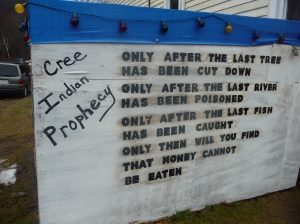 This is on the wall of Tammy’s water buffalo. She has chickens, roosters and grandchildren to take care of.
This is on the wall of Tammy’s water buffalo. She has chickens, roosters and grandchildren to take care of.
The stories today have been moving, and the theme of these discussions has been the lack of the “human element,” or questioning how the people in power seem to be disconnected.
Below we were given a “historical tour” of a small cemetery next to the site of the future Constitution pipeline, which would allow the gas to flow through New York. There was a man very skeptical of our white 15-passenger van parked outside of the cemetery next to the site even though it was public land and he very obviously took pictures of us and the van’s license plate. Imagine living like that, being thought of as a threat and maybe even eco-terrorist.
Nagging question of the week: If nothing is wrong behind the gates, why act so suspicious?
Ray is super active in the anti-fracking movement and loves to be the thorn in Industry’s side. He was hired by Chesapeake to be a water truck driver when the natural gas extraction began. Fun fact, these truck drivers are exempt from all laws that make driving long shifts safe (i.e. drivers may drive longer than 8 hours per day for two weeks straight). So, we talked a lot about the increase in accidents and heard many more heart-wrenching stories. In addition, the tanks that say “fresh water” do not have to hold fresh water. Surprised? Ray has a lot of insight into the other side of the story because of having been employed by Chesapeake and interacting with Cabot Oil and Gas, as well. His front yard displayed many, many anti-fracking signs.
On an unrelated note, Ray passed around a water quality report from the DEP (Department of Environmental Protection). It read, “level to high to determine source.” The people are not even worth proper grammar!
Rebecca and her daughter, Rachel, joined us after dinner. She is a college junior, so we were definitely able to identify with her and it was super special to hear her perspective.
Personally, these experiences have altered the way I think about fracking/Fracking/hydraulic fracturing/the unconventional development of methane from clustered multi well-pads using ultra high volume hydraulic fracturing in long laterals. I believe the issue is not that of process of fracturing the shale rock; the issue is definitely the human impacts of the process. It is amazing, in the most original sense of the work, how much the Industry warps words and ideas, lies, and with-holds information. Those who pass the laws related to fracking must not even read what is written, and those who do are politically invested in the practice. Ray kept reminding the group that it is all about the “almighty dollar;” the Industry pays off whomever may speak out against them even indirectly (the media). I want to further my education and be an active part in finding alternative energies so people do not have to suffer this way.
This blog post is longer than any paper I have had to write this semester, and I still have about 15 pages of notes to share with you. I wish I could reiterate verbatim what Frank, Rebecca, Paul, Gerri, Tammy, Ray and Rachel had to say because I am not doing their words justice. I think I can speak for the group when I say I am ready and willing to bring this reality back. I am excited to share my knew knowledge with you.
I have gained a ridiculous amount of perspective from this alt. break so far. Thank you Aliya, Scotty, Shoshanna and everybody who made this trip so effective. And thank you, readers, for your interest in our investment.
Day 3: Lake water cooling, hydro power, coming into Pennsylvania and our first sighting of fracking
Hi, this is Matt!
So after two successful days we woke up at the crack of dawn to leave the hospitality of Ren’s house, and the friendship of Ben and Alice, to continue our exploration of fracking and our trip into Pennsylvania. On the road we brushed off fatigue and looked out at the beautiful scenery of Ithaca, NY as we road to the Lake Source Cooling facility on Cayuga lake. Arriving early, we briefly got to kill some time skipping rocks on the lake.
Then we got into the meat and potatoes, the nuts and bolts of a complicated process that was both incredibly simple and overwhelmingly complex. Lake source cooling centers around the philosophy of working with nature, using nature to do the work for you instead of trying to force nature to work for you, and this was incredibly cool to me.
To put it simply, all year round the majority of the lake (below 80 feet) retains the cold of winter while a small portion of the lakes surface is heated by the spring and summer weather. So, the facility uses piping to pull cold water from the bottom of the lake and send it through piping to the university. The cold water is then circulated through university buildings and absorbs the heat of the summer months. The hot water is then sent back down to into the lake and is released at a shallow end. Also, this is entirely a closed system, so the elevation of the piping creates a natural siphon that creates most of the force necessary to move the water to and from the lake. However, the devil is in the details. The precise physics in moving the massive quantities of water involved in this process and ensuring that everything runs smoothly is something that is way over my head. However, Lanny Joyce did an amazing job explaining the process to us!
All together, though, this is an incredibly efficient and green system that utilizes the unique local environment of Cayuga lake to solve man’s problems. I think one of the best things about this project is the example it sets for a new kind of philosophy in utilizing technology to benefit humanity: working with nature while protecting instead of against it. And best of all this approach has proved incredibly successful.
After this our team headed to the combined heat & Power Plant at Cornell. We took a walk on the other side of the fence and learned about the efficiency of burning natural gas compared to burning coal, especially when using the combined heat and power technique. If I remember correctly, this technique captures the heat the would be expelled during the normal process of burning natural gas and use it to create more energy. Altogether making a more efficient process leading to less energy expenditure and less emissions. While I personally would be more happy to see more of a switch from gas to renewable, even if the gas is used more efficiently, it was very interesting to learn the about the process of using natural gas and coming to terms with the reality that we have to use it, it was comforting to know that we are using it as efficiently as possible. Shout out to Tim Peer, our excellent guide through the Central Energy Plant, where we got to wear hard helmets!
Next we got to visit Cornell’s Hydro electric plant!
We got to learn the tech behind the the power, and see the machinery first hand. Amazingly enough the plant is still using the original pipping from 100 years ago!
Next we hit up the politics behind the scene in New York, talking to one of the youngest elected councilman who is taking a stand to stop fracking in New York. Dominic was an inspiring speaker. He spoke of background, his inspiration for joining politics and his current work in New York. As a 22 year old international relations student, interested in sustainable development and joining the peace corps our meeting today was somewhat of an awakening moment for me as I think about the future. It was very refreshing to see someone around my own age getting involved in politics and making a difference, here and now. Too often I feel the game of politics is left to older generations, and defined as a place of realism, where as I think it can become and a place for the practical application of idealism.
Finally, we arrived in Pennsylvania. We are in the real countryside now, a big change from Washington DC, and it feels good and comforting. We’re staying at a local’s house, Frank Perry, who is involved in the anti-fracking movement. As soon as we got to the Frank’s we unpacked and decided to go on a hike in the woods behind his house. After about a 10 minute hike we moved to the top of a hill to see the bright yellow orange flare of a fracking well burning in the distance. We had really arrived in Pennsylvania, the heart of the fracking controversy.
In process of completion, will finish tomorrow
Days 1/2
Our trip started early Saturday morning when we all met at the Tenleytown Metro Station at 11AM. Our excitement for the trip could barely be contained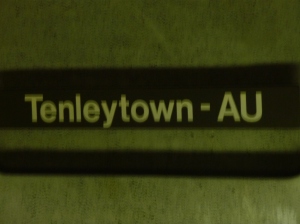 .
.
We hopped on the red line train and took it to the end of the line–Shady Grove. For me, traveling to the far depths caused extreme happiness.
There, we met our staff adviser Chris O’Brien, the Director of Sustainability at AU, along with the van we’ll be travelling with for the duration of our trip.
The drive up to Ithaca, New York was long, but the scenery along the way helped us pass the time.
We even saw some wind turbines!
Finally, we arrived in Ithaca, where we have been staying with Ren Ostry and her housemates. Ren Ostry and Ben Knowles, two students from Ithaca College involved with Environmental Leadership and Actions Network (ELAN) and The Green Umbrella: NY Youth For a Just and Sustainable Future, welcomed us and have truly made us feel at home. After a van ride, we were very hungry, so our Food Crew consisting of Alex, Chenoa, Jordan, and Scotty prepped for dinner.
While our food was baking in the oven, Ren and Ben taught us an awesome game called Stump. First, players would put nails on a tree stump. The goal of the game is for the player to toss a hammer in the air and with one fluid motion, catch it and try to hit the nail of any opposing player. Hilarity ensued.
If a player hit a nail in the middle of the stump, that player was allowed to make a special rule. Rules consisted of anything from sitting in a shopping cart if you dropped a hammer to doing a yoga pose. 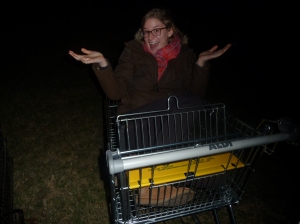
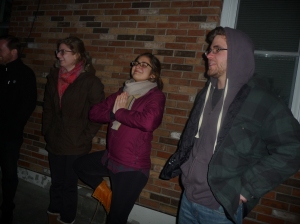
After playing Stump, we watched the movie Dear Governor Cuomowith some students from Ithaca College and Cornell University. The movie is about a protest/concert that takes place in Albany, NY. The purpose? To try to convince Governor Andrew Cuomo that hydraulic fracturing should not be allowed New York. 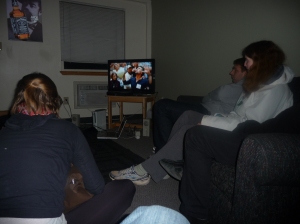
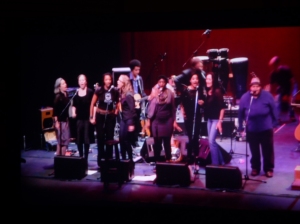
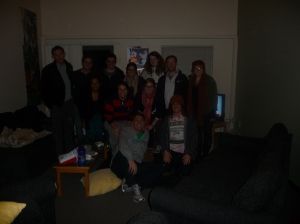
Today, we woke up early for an action packed day. Our first stop was Cornell University, where we had the opportunity to meet with Dr. Tony Ingraffea, long biography short: he’s a fracking expert. It was such a privilege to meet with him and hear all the insightful things he had to say about fracking. One of the main points he made was that the methane released while fracking in shale (a rock formation) is more harmful for the environment than carbon dioxide. Other interesting topics of discussion included the misnomer of what the word “fracking” truly means; his past working in the oil industry; and the oil and gas industry’s influence on research at universities due to funding . 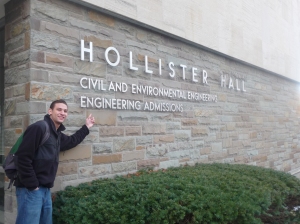
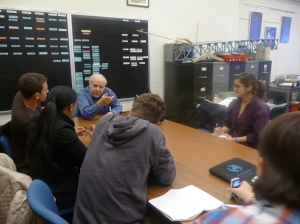
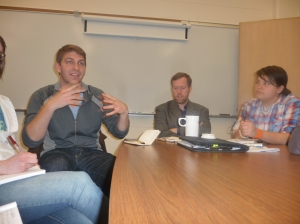
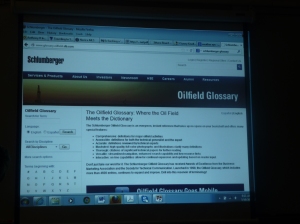
Afterwards, we were led on a sustainable tour of the campus, led by Cornell’s sustainability director, Dan Roth. We talked about the LEED buildings on campus (buildings that are environmentally friendly), how the university cools its air through lake water, and how the campus is trying to become more sustainable. You should definitely check out Cornell’s sustainability webpage for more info!
Once the tour ended, we heard from Marguerite Wells, the project manager from a community owned wind farm called Black Oak Wind Farm, which is the first community owned wind farm in the East. It was interesting to hear about the process of constructing a wind farm and its potential benefits to the local community. It’s really awesome to see sustainable energies being developed and people investing in them! So far 81 people have invested in Black Oak Wind!
Our last stop of the day brought us to downtown, where we met representatives from the anti-fracking activist group, Shaleshock. We talked about the anti-fracking movement in New York and how it exploded over the last five years. Through grassroots organizing, and concerts, rallies, social media, signage, and protests, the anti-fracking movement in Ithaca and the greater state of New York has really made a name for itself.
We were really excited that we got to meet with all different types of people who have involvement in the fracking industry in some way. From listening to scientists to advocates to businesspeople to campus sustainability coordinators, we had one incredible day.
Stay tuned for updates from the rest of our trip!
Zach
Zach Blaifeder is a freshman at the School of Public Affairs at AU, majoring in Political Science. He is from Wayne, New Jersey, likes politics, the NY Mets and riding the Metro.
Spring Break is almost here!
Hello readers!
We are leaving for our Alternative Break in less than two days! We are all very excited to learn about how fracking has impacted people’s lives, and how they have responded to it. Over the past months, we all have been working very hard to learn about fracking and its impact on people’s lives. All of our hard work will pay off when we finally get to see and hear about the impact fracking has had first hand, from speaking with affected community members and touring actual fracking sites!
Our trip is part of a greater movement of Alternative Spring Breaks, in which participants learn about social justice issues and immerse themselves in the issue itself. All trips place a very high emphasis on learning about underlying causes of the issue the trip will focus on, and incorporate service that the host community asks us to perform. We do not engage in “voluntourism” or shallow interactions with communities. At American University there are many other trips, including international and domestic, that cover a wide array of social justice issues. Please visit this link, and learn more about them!
Our trip in particular focuses on sustainable economic development, and its relationship to human rights. We are learning about hydraulic fracturing (fracking) in order to learn about the greater issue of sustainable economic development, and why it is so hard to implement in America. This trip does not take an official stance against or for fracking. We encourage our participants to form their own opinion of fracking from this trip. When we come back from the trip, our group will organize an event to educate the greater community about what we learned.
This blog will be used to document our trip and what our participants have learned during it. It will also be used to educate our readers about Alternative Breaks in general, and what we have planned for the future. Participants will be updating this blog during our trip, and use their unique view on the trip to update this blog.
Thank you so much for your interest in our trip, and we hope you follow our journey!
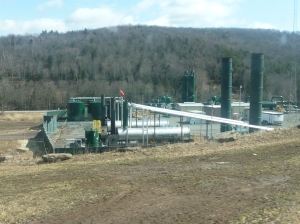
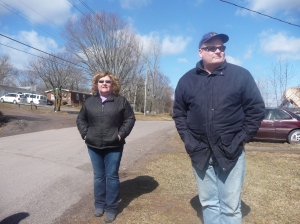
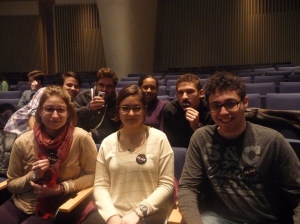
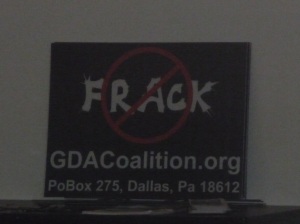
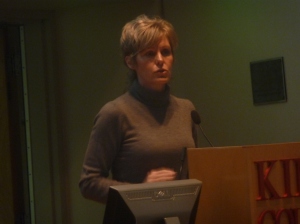
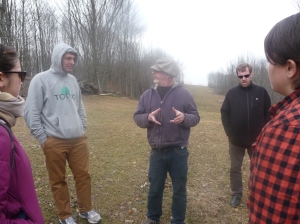
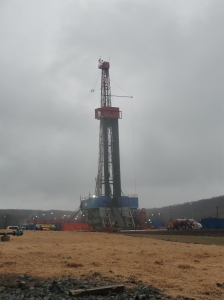
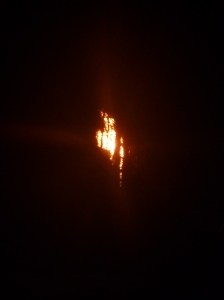
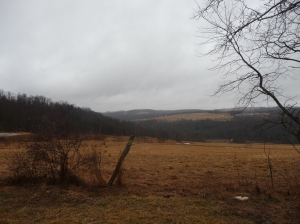
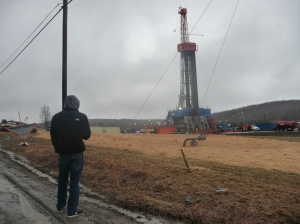
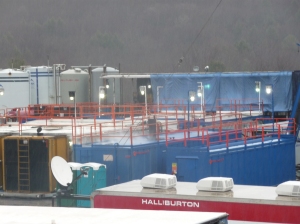
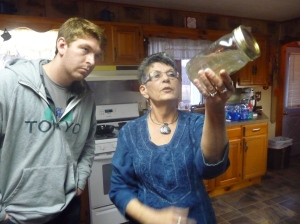
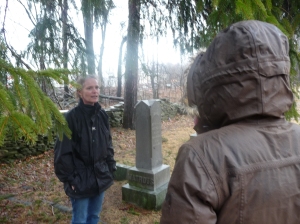
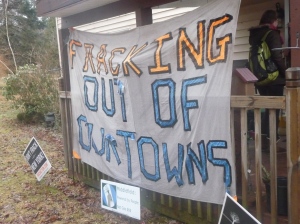
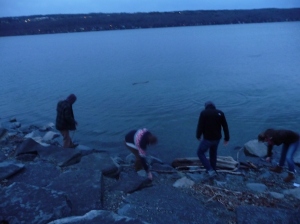
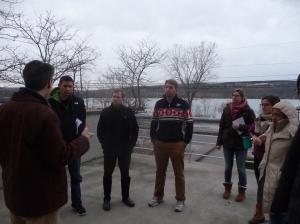
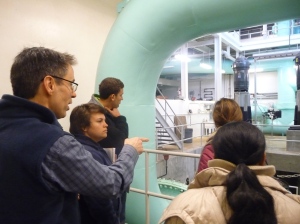
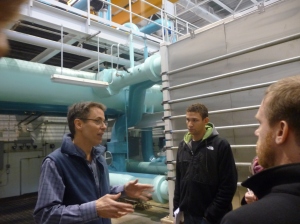
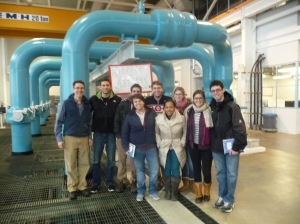
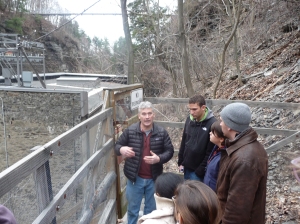
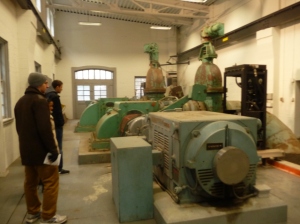
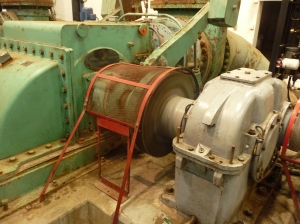
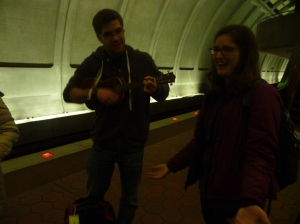
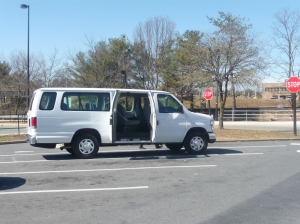
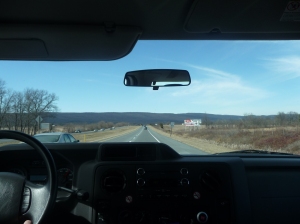
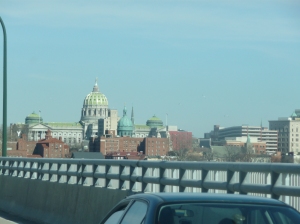
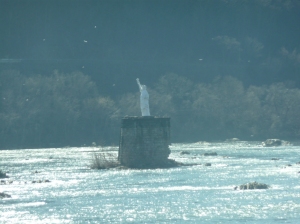
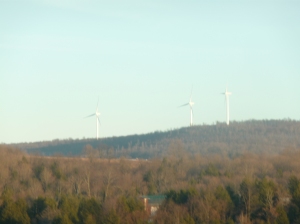
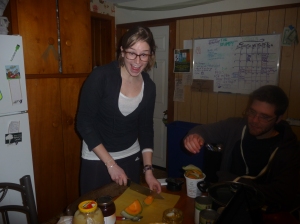
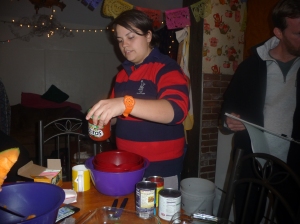
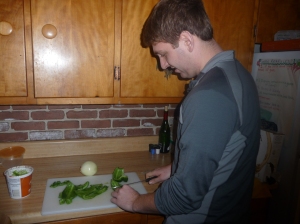
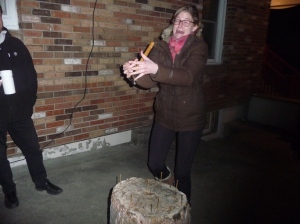
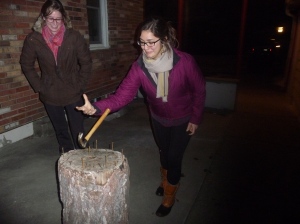
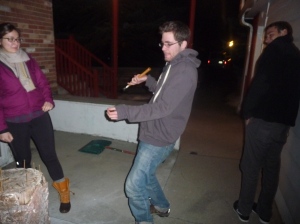
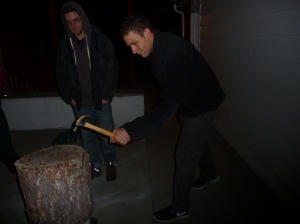
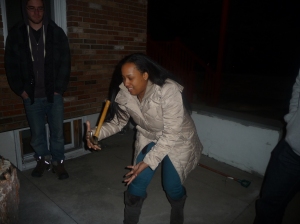
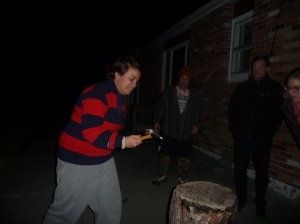
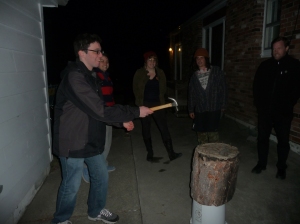
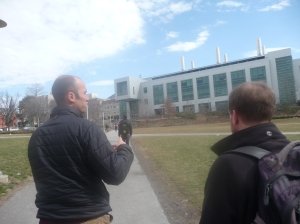
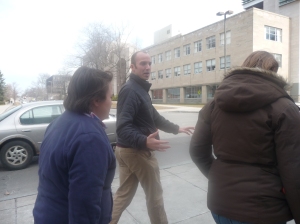
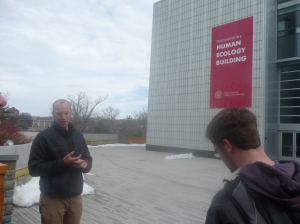
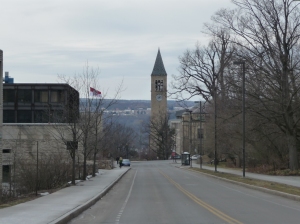
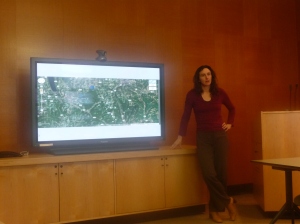
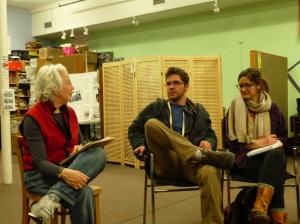
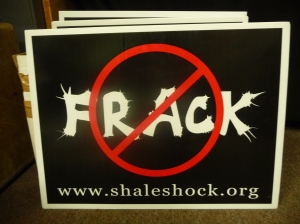
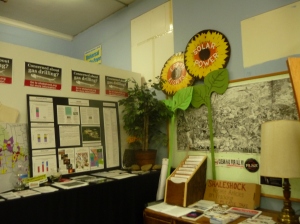
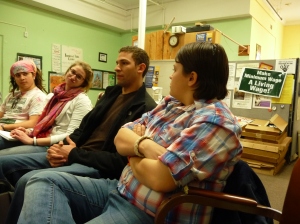
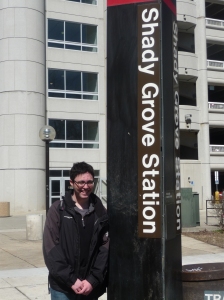
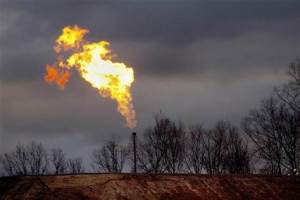
Recent Comments